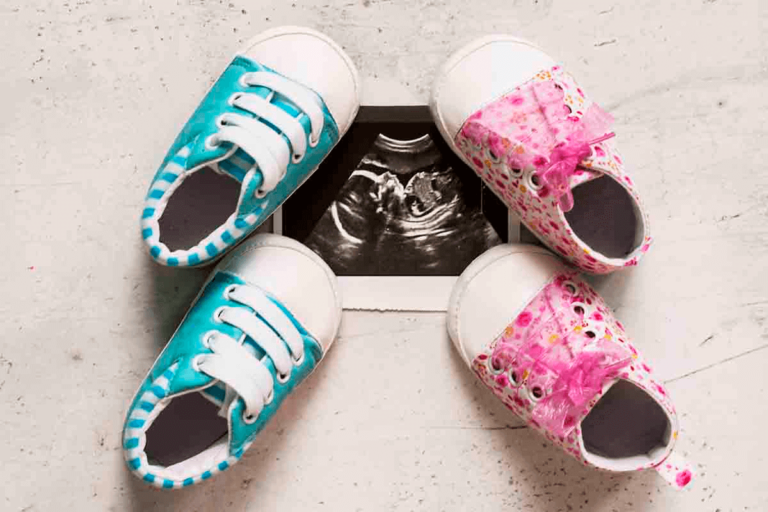Your Guide to Handling Postpartum Depression: Tips & Support

As a new mom, you’re not alone in feeling postpartum depression. About 1 in 7 new parents go through it. It’s a common condition that can be managed with the right strategies.
Postpartum depression can hit anyone, no matter their age or background. It’s important to know the signs and get help when you need it.
Handling postpartum depression can be tough, but with the right support, you can get through it. This article will guide you through postpartum depression. You’ll learn about its prevalence, symptoms, and treatment options.
You’ll also discover how important it is to seek help and build a support network. Learning effective coping strategies can help manage new mom depression.
As you read this guide, remember that postpartum depression is not a sign of weakness. It’s vital to focus on your mental health during this time. With the right mindset and support, you can beat postpartum depression and enjoy this special time with your baby.
Key Takeaways
- Postpartum depression affects about 1 in 7 new parents, making it a common condition that needs attention and support.
- It’s important to recognize the signs of postpartum depression. Symptoms can show up within a week of delivery or develop slowly over time.
- Having a support network is key in managing postpartum depression. This can include family, friends, and healthcare professionals.
- Coping strategies like therapy and medication can help manage symptoms and improve mental health.
- It’s essential to prioritize your mental health during this critical period. Postpartum depression can greatly affect your well-being and relationships.
- Seeking help is a sign of strength. There are many resources available to support new moms with postpartum depression.
Understanding Postpartum Depression: Signs and Solutions
After having a baby, you might feel many emotions. You could feel happy, excited, sad, or anxious. It’s important to know the signs of postpartum depression, which affects about 1 in 8 women. Getting help and support is key to feeling better.
About 70% to 80% of new moms get “baby blues” after giving birth. This usually lasts up to two weeks. But, postpartum depression is different. It affects 10% to 20% of new moms and can start within weeks or up to a year after birth. Risk factors include a history of depression, stressful life events, and breastfeeding troubles.
What Sets Postpartum Depression Apart from Baby Blues
Baby blues and postpartum depression share some symptoms like mood swings and anxiety. But, postpartum depression is more serious and lasts longer. It can make you feel sad, hopeless, and guilty. It also affects your appetite and sleep. If you’re feeling this way, you need to get help and support.
Common Triggers and Risk Factors
Some things can make you more likely to get postpartum depression. These include a history of depression, stressful times, and breastfeeding issues. Women who get postpartum depression might be more likely to have it again in future pregnancies. Knowing these risks and getting help if you’re feeling down is important.
When to Seek Professional Help
If you think you might have postpartum depression, get help right away. A mental health expert can offer support and treatment. This can include therapy and counseling. Remember, postpartum depression is treatable, and asking for help is the first step to feeling better.
Recognizing the Early Warning Signs
As a new mom, knowing the early signs of postpartum depression is key. About 10-15% of women face these symptoms after having a baby. Spotting them early can help you get help fast.
You might feel sad, hopeless, or anxious. It’s important to notice these feelings to stop them from getting worse.
Common symptoms include mood swings, changes in eating or sleeping, and feeling guilty or ashamed. Remember, these symptoms can be managed with the right strategies. By acting fast and seeking help, you can avoid long-term problems and feel better.
Here are some key signs to watch for:
- Trouble sleeping or sleeping too much
- Changes in appetite or eating habits
- Feelings of guilt, shame, or worthlessness
- Deterioration in bonding with your baby
Postpartum depression can last for months or years if not treated. By spotting the signs early and getting help, you can start your journey to recovery. Don’t wait to talk to your doctor or a mental health expert for support and advice on managing postpartum depression.
The Impact of Postpartum Depression on New Mothers
After giving birth, new mothers often feel overwhelmed. Postpartum depression can make things worse, affecting their relationships and daily life. About 10% of new moms get postpartum depression. Getting postpartum depression treatment is key to feeling better.
Postpartum depression can cause physical and emotional symptoms. It also affects mental health. Postpartum depression support from family, doctors, and support groups helps a lot. Postpartum depression therapy teaches new moms how to cope and deal with deep issues.
Managing postpartum depression needs a strong support network and resources. This includes:
- Regular check-ups with your healthcare provider
- Support groups for new mothers
- Online resources and forums
- Counseling or therapy sessions
You’re not alone in this. With the right postpartum depression treatment and postpartum depression support, you can beat postpartum depression and be a great new mom.
Building Your Support Network
When dealing with postpartum depression, having a strong support network is key. This includes postpartum depression support from family, friends, and healthcare professionals. A solid support system can greatly aid in your recovery, providing the postpartum depression resources and postpartum depression help you need.
About 10-15% of new mothers face postpartum depression. This number can rise to 30% in high-risk groups. Building a support network can lower your risk and boost your well-being. Joining a support group is a great way to connect with others who understand your journey.

- Reaching out to friends and family for emotional support
- Joining a support group for new mothers with postpartum depression
- Connecting with a therapist or counselor for professional guidance
- Participating in online forums or social media groups for mothers with postpartum depression
By taking these steps, you can build a strong support network. This network will give you the postpartum depression help and postpartum depression resources you need to overcome postpartum depression.
Professional Treatment Options Available
When facing postpartum depression, knowing you have help is key. Therapy, like cognitive behavioral therapy (CBT), can really help. A good therapist can teach you how to handle tough feelings and prevent future depressions.
Treatment often mixes therapy and medicine. Your doctor might suggest medicine to help with symptoms. It’s important to talk about the good and bad of medicine with your doctor. Also, support groups and online resources can offer a sense of community and help.
Therapy and Counseling Approaches
CBT is a short, focused therapy that helps change negative thoughts and actions. It usually lasts 12-16 sessions and works well for postpartum depression. This therapy can help you manage symptoms, improve relationships, and feel better overall.
Medication Options and Considerations
Medicine can help with depression symptoms, but it’s important to talk about the risks and benefits with your doctor. They can help find the best treatment for you. Combining medicine with therapy and support is a good way to start healing.
There are many resources to help you with postpartum depression. From therapy and counseling to medicine and other treatments, there are many options. By getting help and connecting with others, you can beat depression and become a stronger, healthier person.
Self-Care Strategies for Recovery
Dealing with postpartum depression can be tough. It’s key to focus on self-care to get better. Rest, nutrition, and exercise are important for healing. Adding these to your daily life can help manage symptoms and boost your mood.
Studies show that exercise, like a short walk, can ease depression symptoms. Also, spending time outside can lift your mood. The American College of Obstetricians and Gynecologists suggests 20-30 minutes of moderate activity each day.
- Stick to a sleep schedule to get better rest
- Connect with others to fight loneliness
- Look for support from family, friends, or online groups
By caring for your body and mind, you’re on the path to recovery. Remember, there are resources out there to help. Asking for help is a brave step towards healing.
Partner and Family Support Guidelines
As a partner or family member, you are key in supporting new mothers with postpartum depression. Studies show that social support can help prevent or lessen symptoms of depression. It’s important to know about postpartum depression resources and help.
Women who get support from loved ones are more likely to get professional help for their mental health. It’s vital to know about postpartum depression resources and encourage new mothers to seek help. Here are some ways partners can help:
- Encouraging open communication about feelings and emotions
- Helping with household chores and childcare responsibilities
- Accompanying new mothers to doctor’s appointments and therapy sessions
By giving emotional and practical support, partners and family can help new mothers deal with postpartum depression. It’s important to recognize symptoms like sadness, anxiety, and feeling isolated. If these symptoms last, seek professional help. Remember, supporting new mothers is key to their recovery.
Together, partners and family can offer the support needed. This helps new mothers get the help they need, leading to a quicker recovery.
Finding Local Resources and Support Groups
When dealing with postpartum depression, having local resources and support groups is key. They offer the help and support you need to get better. The American Congress of Obstetricians and Gynecologists (ACOG) has resources and links for all 50 states. This makes it easier to find help near you.
Church groups and charities can also give you the latest on support groups. You can also search online for groups in your area. Many of these groups are free, which is great for those who can’t afford therapy. The National Maternal Mental Health Hotline and Postpartum Support International (PSI) are examples of organizations that offer support.
When looking for a support group, think about what you prefer. Some like small groups, while others prefer larger ones. You might also want to find groups that focus on specific topics, like breastfeeding or military families. Finding the right group can really help your journey with postpartum depression, so don’t hesitate to explore your options.
- National Maternal Mental Health Hotline: 24/7 support for postpartum depression
- Postpartum Support International (PSI): helpline and online resources
- Local church groups and charitable organizations: may provide information on support groups and postpartum depression resources
Conclusion: Your Path to Recovery and Healing
Starting your journey to beat postpartum depression means you’re not alone. The path ahead might look tough, but with the right help and coping strategies for postpartum depression, you can find happiness again. You can start a new chapter in your life as a new mom.
Getting professional help, building a strong support network, and focusing on self-care are key steps. Remember, postpartum depression is treatable. With time, patience, and the right support, you can feel emotionally well again and bond deeply with your child.
Your journey to recovery is special, and every small win is worth celebrating. Celebrate every achievement, big or small. Let these moments boost your strength. With the right support and care for your mental health, you’ll come out of this period stronger and more confident than ever.






